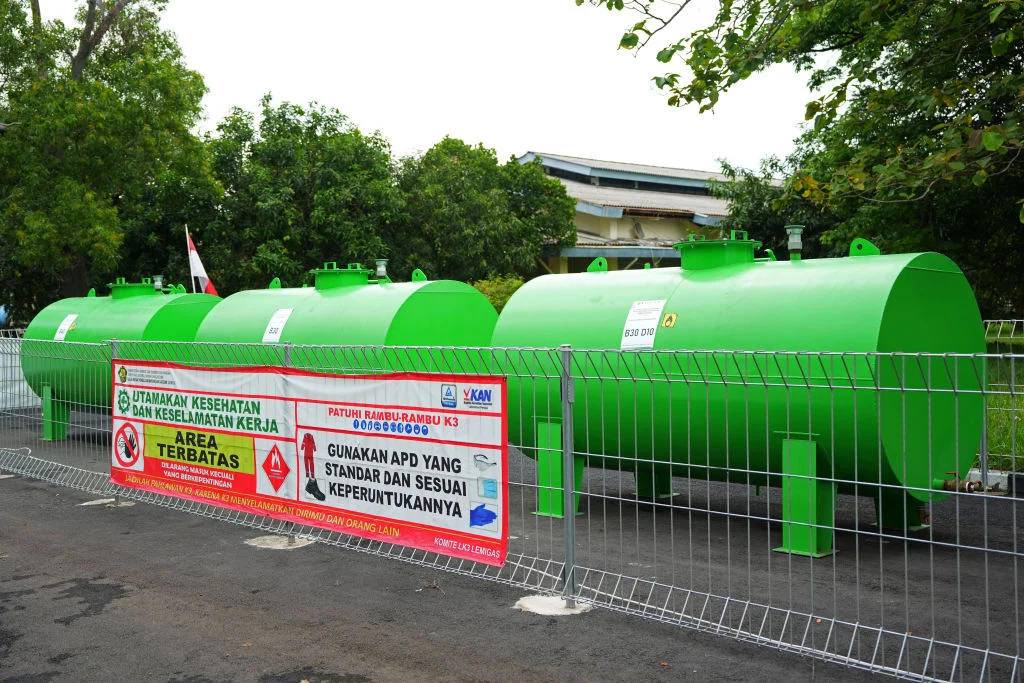EU (Parliament Politic Magazine) – The European Union announced the commencement of an inquiry to determine if the Indonesian Government is evading European Union tariffs on imported biodiesel. There are apprehensions within the EU that Indonesia might be finding ways to bypass duties on its biodiesel exports by routing them through China and the UK.
Given that the EU ranks as Indonesia’s third-largest recipient of palm oil products, it holds a significant position as a market for the country’s biodiesel exports, predominantly derived from palm oil. Notably, Indonesia holds the global top spot as the largest palm oil producer.
Complaint from European Biodiesel Board
Following an initial complaint from the European Biodiesel Board, the investigation was launched. Last year, the board contended that the European Commission had not thoroughly considered all relevant data when determining the undercutting of duty payments by Indonesia. In December, the EU General Court dismissed arguments made by Indonesian exporters who aimed to overturn duties imposed by the European bloc.
The European Commission stated in the official journal of the EU, “The evidence provided in the request indicates that imports of the product under investigation are evading the existing countervailing measures on imports of the relevant product.” The Commission also noted, “A shift in trade dynamics involving exports from Indonesia, the People’s Republic of China, and the United Kingdom to the Union has occurred subsequent to the implementation of the current countervailing measures.”
At the start of this week, Indonesia initiated dispute consultations with the EU at the World Trade Organization (WTO), contesting the EU’s enforcement of duties on Indonesian biofuel. According to Reuters, a spokesperson from the European Commission informed reporters that the EU had confidence that its duties on Indonesia were fully compliant with WTO regulations. The bloc expressed its willingness to engage in discussions with the Indonesian government regarding this matter.
Indonesia Postpones Announcement of Investment Allocation
On Wednesday, Indonesia postponed its announcement of investment allocations from a $20 billion fund. These announcements are now anticipated later in the year. The funding originates from a coalition of nations led by the US and Japan. This coalition has committed to mobilize financial resources, both public and private, for projects related to the transition to clean energy.
In 2021, the Indonesian government unveiled its plans to increase the proportion of renewable energy in its energy mix. The target was to raise the share from 9% in 2020 to 23% by 2025, and eventually to 31% by 2050. However, to achieve this, the country would require 10GW of renewable energy capacity by 2025.
Unfortunately, due to insufficient investment and challenges related to electricity pricing, it’s projected that Indonesia will only achieve approximately 2.5GW of renewable capacity by 2025.
The European Union’s investigation came in response to an initial inquiry made by the European Biodiesel Board.
“The request contains sufficient evidence that the existing countervailing measures on imports of the product concerned are being circumvented by imports of the product under investigation,” the European Commission said in the EU’s official journal.
“A change in the pattern of trade involving exports from Indonesia and the People’s Republic of China and the United Kingdom to the Union has taken place following the imposition of the existing countervailing measures.”
Read More: Effective Risk Mitigation Approaches: A Closer Look at Supply Chain Disruption in Europe, UK, and US
Disruption of Trade
The Trade Ministry of Indonesia did not provide an immediate response upon receiving a comment request.
In the preceding week, Indonesia formally initiated dispute consultations with the World Trade Organization (WTO) concerning the European Union’s imposition of tariffs on biodiesel imports from Indonesia.
When inquired about this matter, a spokesperson from the European Commission informed journalists that the EU holds the belief that its duties on Indonesian biodiesel adhere entirely to the regulations of the World Trade Organization. The EU also expressed its willingness to engage in discussions with Indonesia to address the situation.
The trade connections involving the EU and Indonesia have faced tension due to the EU’s decision to restrict the inflow of commodities associated with deforestation. This move is projected to decrease the EU’s intake of palm oil, a significant import, from major providers like Indonesia and Malaysia. Apart from its usage in biodiesel, palm oil finds extensive application in the realms of food and cosmetics.


